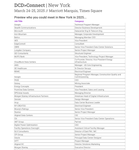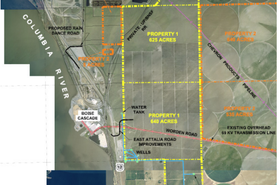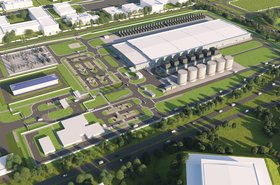Microsoft says it plans to spend $80 billion on building AI data centers in the 2025 financial year, a significant increase on last year.
The company’s president Brad Smith revealed the news in a blog post on Friday, in which he also called for the US government and tech businesses to take steps to ensure American AI technology is adopted around the world rather than alternatives supplied by China.
Microsoft to spend $80bn on AI data centers
Smith hailed the progress of AI companies such as OpenAI - into which Microsoft has poured billions of dollars over the last two years - and Anthropic, as well as Elon Musk’s startup xAI. He said advances by these firms would not have been possible “without new partnerships founded on large-scale infrastructure investments that serve as the essential foundation of AI innovation and use.”
He said: “In FY 2025, Microsoft is on track to invest approximately $80 billion to build-out AI-enabled data centers to train AI models and deploy AI and cloud-based applications around the world. More than half of this total investment will be in the United States, reflecting our commitment to this country and our confidence in the American economy.”
The $80 billion would reflect a significant increase on the $53 billion capex spend Microsoft made in 2023.
Microsoft’s data center build-out in the US and beyond has already been extensive. Documents leaked last April revealed it had more than 5GW of capacity at its disposal, with plans to add an additional 1.5GW in the first half of 2025. It is possible this has since been revised upwards as it looks to provide compute power to OpenAI to run ChatGPT and its other AI services, as well as supporting its own Azure public cloud platform.
Despite this, it has been reported that OpenAI is looking to work with other data center providers because Microsoft is unable to keep up with its demands.
OpenAI and Microsoft are said to have been working on plans for a massive 5GW data center known as Stargate, that could open by 2028.
US must be smart to win the AI race with China
Smith also used the blog post to call for the US to take steps to ensure American AI technology is adopted in markets around the world.
The US and China have been engaged in a tech trade war across the last two presidencies, with America restricting Chinese access to key components made by home-grown companies such as Nvidia.
This has led China to start developing its own alternatives, which Smith believes could be adopted in emerging markets around the world.
He used the example of telecoms infrastructure, where Chinese company Huawei has successfully embedded itself as a key digital infrastructure vendor in many regions. It is banned in several Western markets, including the US and UK, because of its close links to the Chinese government.
“Initially, American and European companies such as Lucent, Alcatel, Ericsson, and Nokia built innovative products that defined international standards” in telecoms, Smith said. “But as Huawei invested in innovation and China’s government subsidized sales of its products, especially across the developing world, adoption of these Chinese products outpaced the competition and became the backbone of numerous countries’ telecommunications networks.
“As we enter the second half of the decade, early signs suggest the Government of China is interested in replicating its successful telecommunications strategy. China is starting to offer developing countries subsidized access to scarce chips, and it’s promising to build local AI data centers. The Chinese wisely recognize that if a country standardizes on China’s AI platform, it likely will continue to rely on that platform in the future.”
He said the solution to this is to ensure AI systems around the world are housed in data centers that “meet the US government’s highest cyber and physical security standards.” Unsurprisingly, he believes Microsoft is in poll position to deliver such facilities.
“The best response for the United States is not to complain about the competition but to ensure we win the race ahead,” Smith said. “This will require that we move quickly and effectively to promote American AI as a superior alternative. And it will need the involvement and support of American allies and friends.”








